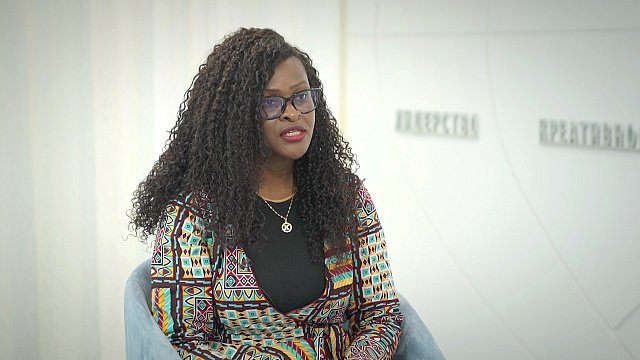14.02.24
16:16
Minister of Technical and Higher Education of the Republic of Sierra Leone: Quality education is the foundation for achieving all 17 SDGs
Ramatulai Wurie spoke about how Sierra Leone could benefit from the Russian Federation’s experience in this area
Ramatulai Wurie has been the Minister of Technical and Higher Education of the Republic of Sierra Leone since August 2023. She was educated at the Universities of Liverpool and Wolverhampton. She teaches at the College of Medicine and Allied Health Sciences, University of Sierra Leone. She has authored a number of studies on health system issues in Sierra Leone. Wurie was involved in the development of the post-Ebola recovery plan for the republic’s health sector.
In an
exclusive interview for TV BRICS, she spoke about the key goal of sustainable development.
Tell us about the education system of the Republic of Sierra Leone. How is it organized?
In Sierra Leone, as in other parts of the world, we have early childhood development, foundation of learning, primary school, secondary school and universities as well as vocational training.
Ministry of Education was split into two. The Ministry of Basic School Education deals with early development, primary and secondary schools. The second, the Ministry of Higher Education, deals with universities and vocational training.
Which specialties are the most popular in your country today? If we talk about technical specialties and if we talk about specialties, which are more the most popular among young people who want to get a higher education?
We have quite a number of different sectors that is relevant and all of them are linked back to our development agenda. Education is the area to which we have paid the most attention, especially in recent years. In the first five years of President Julius Maada Bio’s government, education became our Flemish programme. For the next five years, the development of human capital in our country has been prioritised.
And, as I said earlier, our young people are choosing a wide variety of professions. Now, for example, doctors are in demand, because we are working to strengthen the healthcare sector, mining and engineering are popular. Our young specialists will give impetus to these industries. In addition, we are seeing an impetus for technology and digitalisation. This is another priority area of the present government. We need to ensure that digitalisation is introduced into our systems and processes as soon as possible.
As you realise, all these measures are being taken to improve the efficiency of our global government projects. There are many popular areas of learning, but they all depend on the national development agenda.
We are currently at the People’s Friendship University of Russia, where an international scientific conference of students and young scientists for the science sustainable development of civilization is regularly held. How relevant do you think such conferences are today and how can they be useful?
I think it’s it’s very, very relevant and also very timely. September was the high-level week of the UN General Assembly. Now is the time to create new platforms where we can voice different perspectives from around the world. We need to share our experiences with each other. This is the only way we can achieve the Sustainable Development Goals.
As we know, there are 17 UN Sustainable Development Goals. Among them is quality education. What do you think should be done to achieve this goal as soon as possible on the planet?
For me personally, this is the basis for achieving all 17 goals. Human capital is the basis of everything. So, in my opinion, the most important thing in the SDGs is education. Having such a goal guarantees that we will train exactly those specialists who are needed at a given time at the country, continental, regional, or any other level. Education must be relevant to the needs of society.
It is educated people who should make key decisions. I believe that it is youth that should be considered as the most valuable asset. I think people in most countries realise that. In Sierra Leone, we have a very young population and the President is trying to make the most of it.
What do you think about the Russian education system? In your opinion, what experience of the Russian Federation in this area could be useful for your country?
Bilateral relations between Sierra Leone and Russia go back more than 60 years. Students from our country come to you to study in a variety of fields. One of the most popular is medicine. When they return home, they make a great contribution to the development of our health care system, to its strengthening. I think this is important. We want to develop human capital, and we very much want to continue our co-operation in many different directions, because it is necessary for the development of our country.
We are looking forward to working together on vocational training. And what is also important, our young people who study in Russia can get to know your culture better, it makes them more open-minded. Not only do students learn to accept the culture of another country, but they also learn to express themselves and better identify with their native culture.
The full interview is available on the
TV BRICS website.
Photo: TV BRICS
Back

